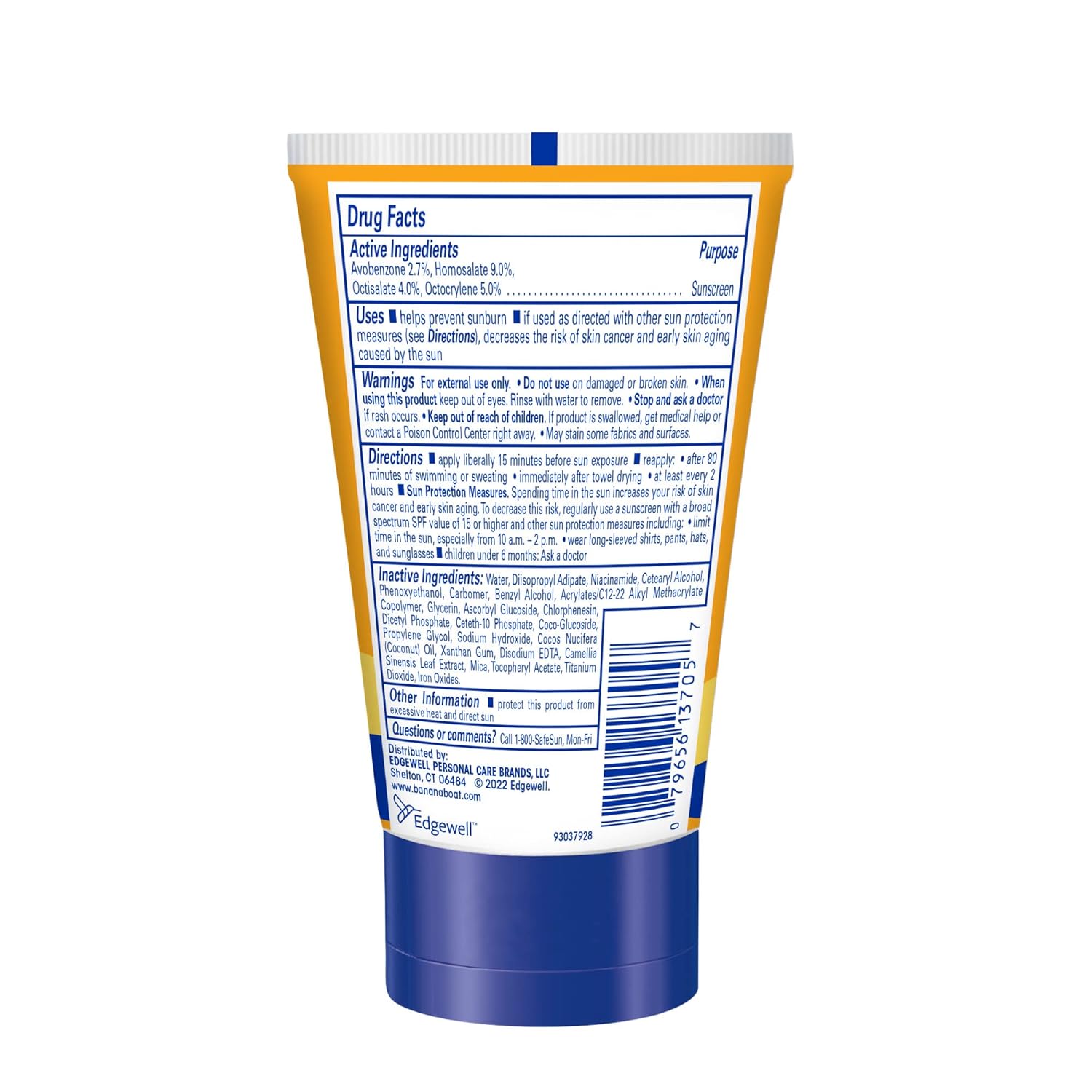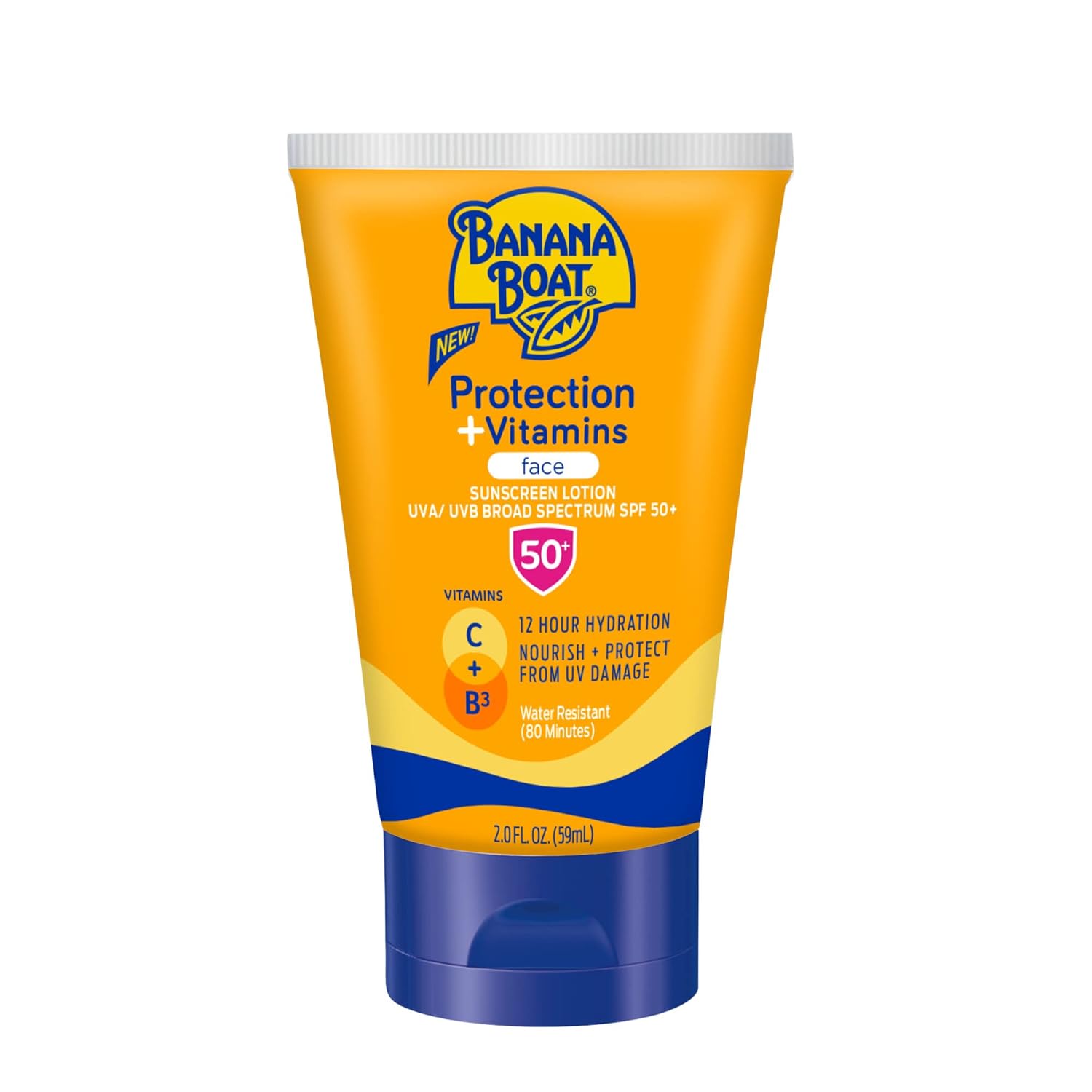









Price: $10.59 - $9.99
(as of Apr 08, 2025 02:51:06 UTC - Details)
The Best Sunscreen for Face: Your Ultimate Guide to Sun Protection
When it comes to skincare, one product stands out as essential for everyone: sunscreen. Finding the best sunscreen for your face can be overwhelming, given the myriad of options available. In this guide, we’ll explore the best sunscreens for your face, focusing on various long-tail keywords to help you make an informed decision. Whether you’re looking for something lightweight, mineral-based, or perfect for sensitive skin, we've got you covered. Let's dive in!
Why You Need Sunscreen for Your Face
Sun exposure can lead to premature aging, sunburn, and even skin cancer. Using sunscreen daily is crucial to protect your skin from harmful UV rays. The best sunscreen for your face not only shields you from the sun but also hydrates and nourishes your skin. Let's explore different types of sunscreens and what to look for.
Mineral vs. Chemical Sunscreens
One of the first decisions you’ll need to make is whether to choose a mineral or chemical sunscreen.
Mineral Sunscreen for Face
Mineral sunscreens contain zinc oxide or titanium dioxide. These ingredients sit on top of your skin and reflect UV rays. They are often recommended for sensitive skin because they are less likely to cause irritation. If you’re looking for the best mineral sunscreen for your face, consider options with a lightweight formula that won’t clog pores.
Chemical Sunscreen for Face
Chemical sunscreens, on the other hand, absorb UV rays and convert them into heat, which then gets released from the skin. These formulas tend to be lighter and are often easier to apply. However, some people may experience irritation from certain chemical ingredients. If you prefer a chemical formula, look for one that includes ingredients like avobenzone or octisalate.
Best Sunscreen for Oily Skin
If you have oily skin, you might worry about sunscreen making your face feel greasy. Fortunately, many brands offer lightweight, oil-free formulas that provide excellent sun protection without adding shine.
Look for sunscreens labeled as “matte finish” or “oil-free.” These types often contain ingredients like silica or kaolin clay, which help absorb excess oil. The best sunscreen for oily skin should also be non-comedogenic, meaning it won’t clog your pores.
Best Sunscreen for Dry Skin
On the flip side, if you have dry skin, you want a sunscreen that provides hydration along with sun protection. Look for formulations that include moisturizing ingredients like hyaluronic acid, glycerin, or aloe vera.
The best sunscreen for dry skin should feel creamy and nourishing, giving your skin a boost of moisture while protecting it from UV rays. A broad-spectrum sunscreen with SPF 30 or higher is ideal.
Best Sunscreen for Sensitive Skin
Sensitive skin can react to many skincare products, so choosing the right sunscreen is essential. The best sunscreen for sensitive skin often contains physical blockers like zinc oxide or titanium dioxide, as these are less likely to irritate.
Additionally, look for sunscreens free from fragrances, parabens, and artificial colors. A hypoallergenic formula can also be a great choice if you have sensitive skin.
Best Tinted Sunscreen for Face
Tinted sunscreens offer the added benefit of providing a hint of color while protecting your skin from the sun. The best tinted sunscreen for your face can help even out your complexion and reduce the need for additional makeup.
These products often come in various shades to match different skin tones. Look for a tinted sunscreen that offers broad-spectrum protection and is lightweight, so it feels comfortable throughout the day.
Best Sunscreen for Acne-Prone Skin
If you’re prone to breakouts, finding the right sunscreen is crucial. The best sunscreen for acne-prone skin should be non-comedogenic and oil-free.
Many brands now offer specific formulations designed for acne-prone skin. Look for ingredients like salicylic acid or niacinamide, which can help control acne while providing sun protection.
How to Apply Sunscreen Properly
Applying sunscreen correctly is just as important as choosing the right product. Here’s a quick guide to ensure you’re getting the most out of your sunscreen:
- Apply Generously: Use about a nickel-sized amount for your face. Don’t skimp!
- Apply Before Sun Exposure: Put your sunscreen on at least 15-30 minutes before going outside to give it time to absorb.
- Reapply Regularly: If you’re sweating or swimming, reapply every two hours or immediately after towel drying.
- Don’t Forget Areas: Make sure to cover all exposed areas, including your ears, neck, and the back of your hands.
Frequently Asked Questions About Sunscreen
1. How often should I apply sunscreen?
You should reapply every two hours, or more frequently if you're swimming or sweating.
2. What SPF should I use?
A broad-spectrum sunscreen with at least SPF 30 is recommended for daily use.
3. Can I use sunscreen on my makeup?
Yes, look for setting sprays or powders that contain SPF for touch-ups throughout the day.
Conclusion: Protect Your Skin with the Best Sunscreen for Your Face
Choosing the right sunscreen is essential for maintaining healthy skin and preventing damage from UV rays. Whether you need a mineral sunscreen for sensitive skin, a lightweight option for oily skin, or a tinted formula for everyday wear, there are plenty of great products available. Remember to apply generously and reapply regularly. By incorporating sunscreen into your daily routine, you’re taking a significant step towards healthier, more radiant skin.
Always prioritize finding the best sunscreen for your face that suits your specific skin needs, and enjoy the sun safely!
FACE NIACINAMIDE SUNSCREEN WITH VITAMIN C — for 12-hour hydration
ABSORBS EXCESS OILS & WON’T CLOG PORES — Non-greasy feel, perfect for use under makeup
NOURISHES & PROTECTS SKIN from UV damage & premature aging
DERMATOLOGIST TESTED SPF 50 SUNSCREEN LOTION with vitamin C and B3 (Niacinamide)
OCTINOXATE AND OXYBENZONE FREE SUNSCREEN
AWARDED THE SKIN CANCER FOUNDATION SEAL FOR DAILY USE
